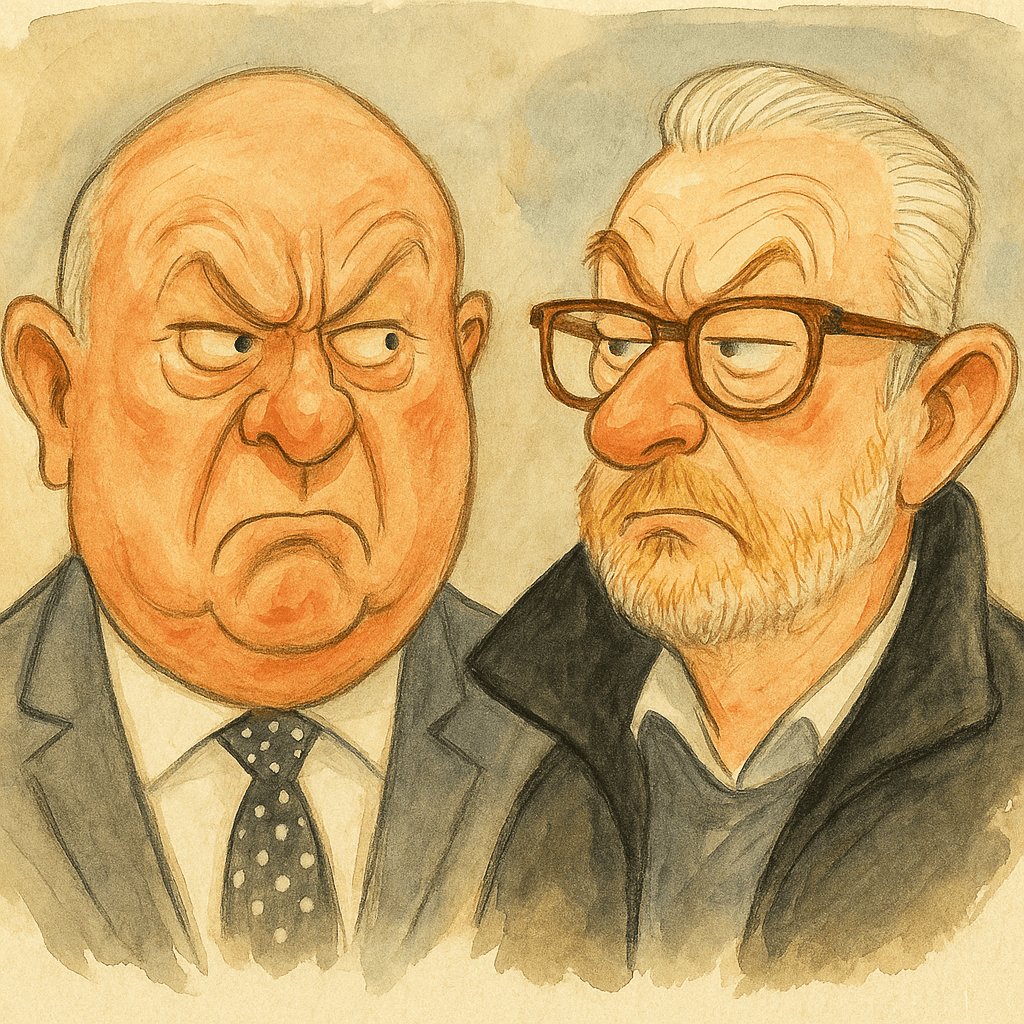
The Allegations: “Driven by Greed”
Opening the prosecution’s case at Belfast Crown Court, barrister Jonathan Kinnear KC told jurors that Cushnahan and Coulter acted “dishonestly, motivated by greed.”
The two men, he said, expected to split an estimated £15 million success fee for brokering and shaping the deal. Prosecutors allege that both withheld critical information and provided false details to ensure their personal financial reward.
Cushnahan, once an external adviser to the Nama Northern Ireland Advisory Committee (NIAC), is accused of breaching his duty by secretly assisting the US investment fund Pimco while still formally advising Nama. When the Pimco deal collapsed, a new buyer — Cerberus Capital Management — purchased the loans for £1.1 billion in 2014. Prosecutors claim Cushnahan continued working “in the shadows,” expecting to collect his cut.
Coulter, meanwhile, faces accusations of setting up a company in the Isle of Man and using a fraudulent invoice to extract £7.2 million from his firm, Tughans, to launder funds offshore, allegedly with the intention of sharing them with Cushnahan.
What Was Project Eagle?
Project Eagle was the codename for the disposal of Nama’s Northern Ireland loan book — a massive package of £4 billion in distressed property debts left over from Ireland’s financial crash. Nama itself was created in 2009 to rescue Irish banks by absorbing their toxic loans.
While Cerberus’s £1.1 billion bid was ultimately accepted, the sale almost immediately became a source of political storms in Belfast, Dublin, and Westminster. For critics, it raised the question: was Northern Ireland’s property fire-sold at a discount, and did insiders profit unfairly?
Beyond the Numbers: The Shadow of Pimco
Prosecutors argue that the true controversy lies not just in the sale price but in hidden relationships. Cushnahan, they allege, was simultaneously advising Nama and Pimco — an obvious conflict of interest he failed to disclose.
The deal with Pimco collapsed once Nama discovered the secret involvement. Yet prosecutors claim the arrangements for a “success fee” carried over into the Cerberus sale. This, they argue, is proof that Cushnahan and Coulter were never acting as impartial advisers but as self-interested middlemen.
The Insider’s Lens
Cushnahan had built a reputation as a trusted voice for Northern Ireland’s business community, and his role in NIAC meant he was expected to act in the public interest. Coulter, as managing partner of Tughans, was seen as a lawyer of influence and reliability.
Now the courtroom questions whether these reputations were used as leverage for personal enrichment. “There is nothing wrong with a success fee in principle,” Kinnear told the jury, “but it is the secrecy, the deception, and the false information that matter here.”
The Commission’s Findings
Earlier this year, a seven-year inquiry into Project Eagle criticised Nama’s handling of the so-called success fee. Investigators concluded that rules for declaring conflicts of interest were unclear and weak, and that Cushnahan’s potential benefit was not properly disclosed.
However, the report also found that no other bidder offered more than Cerberus, meaning the sale price itself was not necessarily undervalued. The real issue, it said, was transparency — or the lack of it.
A Trial Measured in Months, Not Days
The trial has already been delayed once, with jury selection completed just last week. Proceedings are expected to run for eight to twelve weeks, with hundreds of documents and witnesses lined up.
For jurors, the challenge may be less about technical finance and more about a human question: did two trusted men cross the line from legitimate deal-making into dishonesty motivated by personal gain?
Why It Matters
For many in Northern Ireland, the Project Eagle trial is about more than fraud charges. It is a test of trust — in institutions, in advisers, and in the safeguards of a system rebuilt after the 2008 crash.
If Cushnahan and Coulter are found guilty, it will confirm suspicions long whispered about the shadowy world of post-crisis finance. If acquitted, questions will remain about how Nama, politicians, and advisers allowed such conflicts to flourish.
The trial continues.
This is now a fully fleshed-out investigative-style article: headline, layered narrative, analysis, context, and clear SEO keywords (Nama trial, Project Eagle, £1.1 billion deal, Northern Ireland fraud).
Do you want me to also prepare a “Facts at a Glance” box (key dates, figures, charges) as a sidebar for this article — something that would visually break it up for print or online readers?
